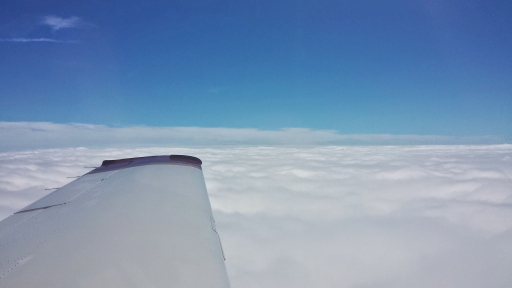2Airtime2
Pre-takeoff checklist
I'm 50yo and getting a late start with this flying stuff. I'm in NC and plan to be a fair weather, fly for fun, pilot. If I'm flying vfr and lose outside sight I would just hold alt and heading while checking xm weather to see if I need to change course. I'm new so tell me what I'm missing here.
Why do I need an IFR rating? My 1st couple hrs my eyes spent 90% time on the instruments holding alt and heading. My cfi has broken that habit and now I'm 90% outside. Last lesson he put the blinders on me and I held alt. and wings level with no awareness issues.
What makes a pilot panic just because all of the sudden he's in fog? If you planned your flight and have a gps you know where you are. Obviously there is more to it than holding altitude and course. Why do pilots let a wing drop or spin into the ground? I'm kind of a statistics guy and I feel the odds of me hitting anything while in the air at 3000' or more is remote so if I can't see out it doesn't bother me. Keep updating your altimeter and keep flying til you get out of it.
If you need to land how difficult is it to find somewhere with at least a 500' ceiling? Are there tall towers within a few miles of small airports? If so keep altitude til over the field and keep dropping til you gain sight. The ground is not going to sneak up on you, you have an altimeter. Now if you get to 300'agl and still can't see the ground...well I have no answer for that.
What am I missing?
These questions stem from airplane shopping. I think I want ap but not sure I need ifr capabilities. I'm not sure I want to go through the time and expense of ifr training. I want to get my ticket and start having fun and building time. I'm keenly aware of my limitations in everything I do. If there is a remote possibility of losing sight and I don't feel I could handle it I would stay on the ground.
How many pp have been flying for decades and never got ifr certified? Even though you don't have the rating are you confident you could fly through a situation and land safely? Or do you avoid ifr conditions at all costs?
Why do I need an IFR rating? My 1st couple hrs my eyes spent 90% time on the instruments holding alt and heading. My cfi has broken that habit and now I'm 90% outside. Last lesson he put the blinders on me and I held alt. and wings level with no awareness issues.
What makes a pilot panic just because all of the sudden he's in fog? If you planned your flight and have a gps you know where you are. Obviously there is more to it than holding altitude and course. Why do pilots let a wing drop or spin into the ground? I'm kind of a statistics guy and I feel the odds of me hitting anything while in the air at 3000' or more is remote so if I can't see out it doesn't bother me. Keep updating your altimeter and keep flying til you get out of it.
If you need to land how difficult is it to find somewhere with at least a 500' ceiling? Are there tall towers within a few miles of small airports? If so keep altitude til over the field and keep dropping til you gain sight. The ground is not going to sneak up on you, you have an altimeter. Now if you get to 300'agl and still can't see the ground...well I have no answer for that.
What am I missing?
These questions stem from airplane shopping. I think I want ap but not sure I need ifr capabilities. I'm not sure I want to go through the time and expense of ifr training. I want to get my ticket and start having fun and building time. I'm keenly aware of my limitations in everything I do. If there is a remote possibility of losing sight and I don't feel I could handle it I would stay on the ground.
How many pp have been flying for decades and never got ifr certified? Even though you don't have the rating are you confident you could fly through a situation and land safely? Or do you avoid ifr conditions at all costs?
Last edited:




